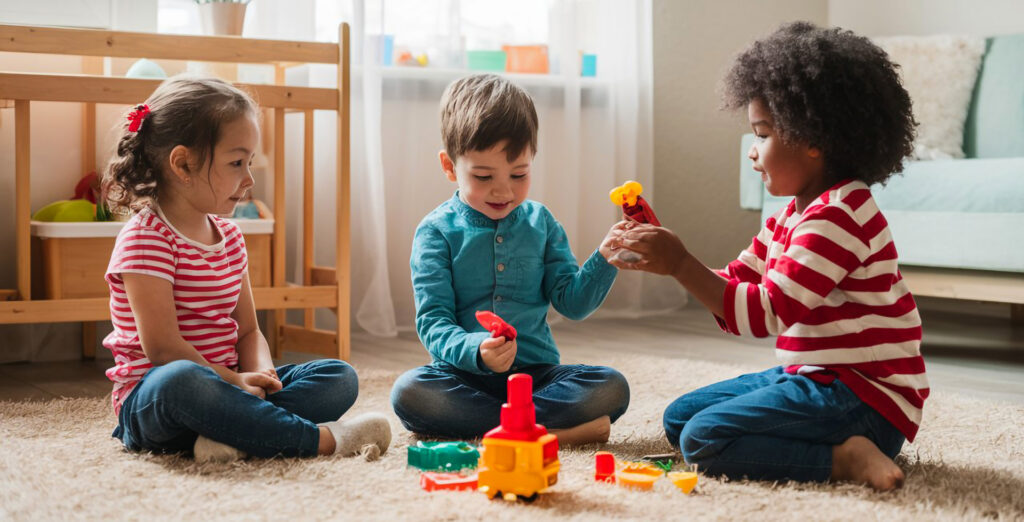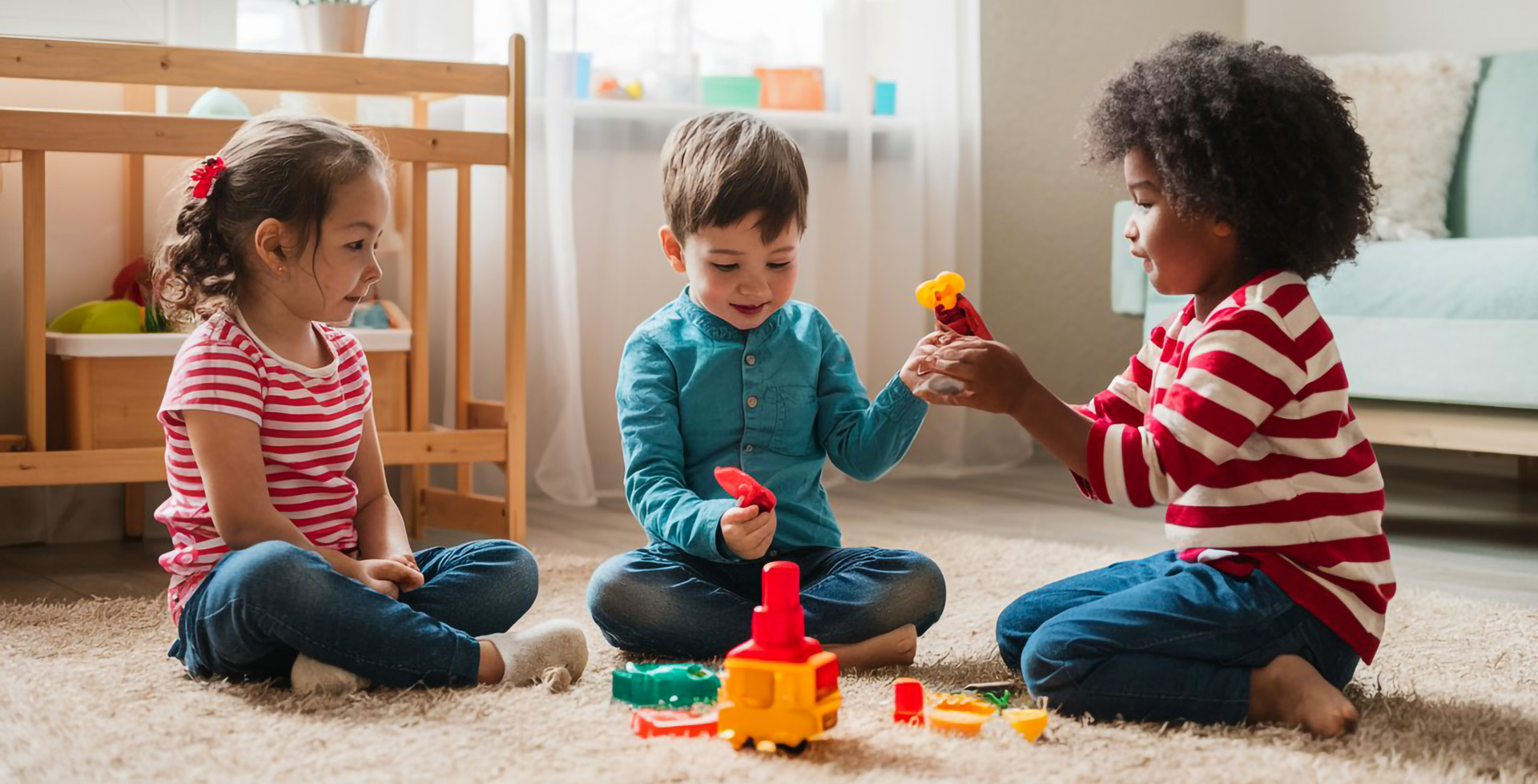By Alex Cross-Knorr, PhD
You may have heard about the importance of “social-emotional intelligence” in the media, or maybe your child’s school even includes a social-emotional learning (SEL) curriculum.
But what exactly is social-emotional intelligence? Why is it important? And how can you, as a parent, help your child develop these skills?
Social-Emotional Intelligence Defined
A child’s “social-emotional intelligence” refers to a set of skills that includes:
- Recognizing emotions in themselves and others.
- Understanding how their own and others’ perspectives and experiences influence choices and actions.
- Responding effectively to uncomfortable feelings and difficult situations.
- Overcoming obstacles and working toward goals.
- Connecting with and getting along with others.
- Developing positive and connected friendships.
- Managing conflict and disagreements.
- Considering the consequences of their choices, including the impact on others.
The Benefits of Developing Healthy Social-Emotional Skills
Research indicates that children who have numerous opportunities to develop social-emotional skills tend to perform better in school. They also experience less emotional distress, possess better coping skills, demonstrate greater resilience, and have a stronger sense of belonging and safety in their relationships and communities. Additionally, they feel more positively about themselves and others, all of which can protect them from mental health risks.
Real-world Approaches To Support Social-Emotional Learning
So, what can parents do to support their child’s social-emotional learning? Here are some ideas:
1. Label emotions in yourself, your child, and others
This can even include characters in books, shows, and movies! The more vocabulary your child has for feelings, the better they will be able to understand and express them.
- Here’s an example: Your child is talking about their “stupid” classmate who is having a birthday party and didn’t invite them. Instead of the gut reaction of being upset that they called someone an unkind word, help them reflect on their emotions first. “Wow! It seems like you are feeling angry and that your feelings are hurt that you weren’t invited.” Then, after you’ve helped them identify and navigate their feelings, you can talk about how the “stupid” label was just a reaction to hard feelings. It’s also a good idea to model your own emotional spectrum at times, such as, “I had a really bad day at work and I felt angry about some decisions that were made. I’m going to walk the dog and listen to my favorite music to calm down.” This shows the journey from recognizing emotions to regulating them in healthy ways.
2. Push pause on immediately fixing your child’s problems
Coach your child through solving problems without immediately providing the solution. Help them identify various ways they could respond and the potential outcomes. Let them choose what they think is the best option, even if it is not what you would choose (unless it is unsafe). This gives them the opportunity to learn about consequences and maybe make a different choice next time.
- Here’s an example: Let’s say your child is disappointed about their grade on a test. You could ask them to come up with some ideas for what they could do (only offering ideas if they need help). Some examples might include discussing the option to retake the test with their teacher, asking the teacher to review what was wrong, or seeking additional help with studying for the next test. Then ask your child to think of the “upsides” and “downsides” for each idea, imagining what might happen if they chose that idea. For instance, asking to retake the test might mean getting a better grade, but the teacher might say no, and it would involve more work. Then ask your child to choose what she thinks is the best option (based on the upsides and downsides) and make a plan to try it – even if it’s not the same choice you would make.
3. Hold “failure as natural” when it comes to learning & growing
Allow children to experience mistakes and “failures” from time to time, instead of always “rescuing” them. Then help them identify what they can learn from the experience and how to move forward.
- Here’s an example: Maybe your child decides to cancel plans with Friend 1 because Friend 2 invited him to do something more exciting. You tell him that Friend 1 might feel hurt as a result, but let him make the choice. When his friend does get upset, you can gently help your child connect his choice to his friend’s feelings and coach him on what he could do to make it right.
4. Provide plenty of opportunities for socializing with peers (in person when possible).
When inevitable disagreements or conflicts arise, help them consider different perspectives and identify ways to resolve the problem. Discuss how to respond to peers who do not treat them kindly.
Here’s an example: Role-playing is an excellent way to help your child socialize with peers. If you notice your child has a hard time sharing toys, is grabby with others’ toys, or is a pretty sore loser, you can start role-playing at home so they can practice their responses. Games like Chutes & Ladders are good for this because they’re far more about luck than skill, and there are plenty of opportunities for learning how to lose without being unkind to the other person. Cooperative board games, such as Hoot, Hoot, Owl or Friends & Neighbors, can also be good ideas for playdates, because they’re designed for players to work together to win rather than playing against each other.
5. Be a role model
Most of the lessons and behaviors we want to teach and cultivate in our children begin with us as parents and caregivers. Try to model kind and respectful communication, support others, help your child cope with emotions, and encourage problem-solving. When you make a mistake or fail to treat someone kindly (it happens to all of us), model apologizing and taking accountability. Model being a good loser, rather than a sore loser, when the opportunity arises.
For more information on helping children develop social-emotional awareness, visit the Collaborative for Academic, Social, and Emotional Learning (CASEL). And, if your child is struggling in any of these areas, or you would like more guidance as a parent, PANW’s behavioral health providers are here to help!
PANW Helps Parents Cultivate Emotional Intelligence
Do you have questions about cultivating social-emotional awareness for your children? PANW is committed to providing comprehensive health and wellness support for our pediatric patients and their families.
Click here for more information, or call the clinic at (503) 227-0671 to schedule an appointment.





